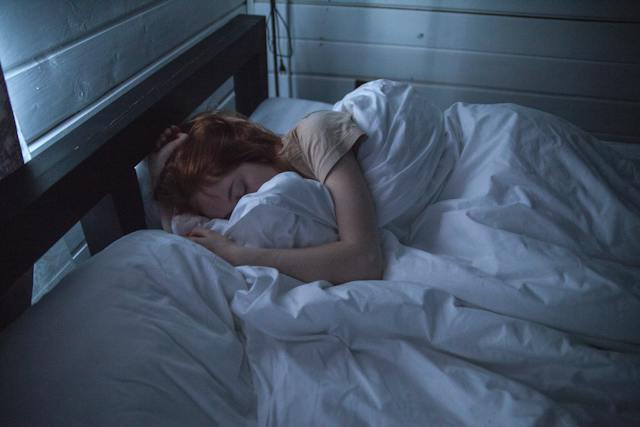For many people, in our fast-paced world, when stress and demands seem constant, a good night’s sleep can seem like a distant dream. The importance of quality sleep cannot be overstated as it directly impacts our physical health, mental health and overall productivity. If you find yourself tossing and turning, trying to suppress your racing thoughts, or waking up groggy and restless, have no fear! This comprehensive guide will delve into countless tips and tricks to help you get your night back and experience the rejuvenating power of deep, restful sleep. Read these tips and get better sleep:
Create a peaceful sleep environment
The foundation of a good night’s sleep starts with your sleep environment. Think of your bedroom as a relaxing sanctuary. Keep your room tidy, maintain a comfortable room temperature, and invest in a quality twin mattress and pillows to meet your unique sleep needs. Dim the lights before bed to signal to your body that it’s time to wind down. Plus, the best light-blocking sleep masks can be a game-changer for people with light sensitivity. They provide a complete blackout experience to enhance the quality of your sleep.
Establish a consistent sleep schedule
Our bodies thrive on daily routines, and our sleep-wake cycles are no exception. Try to go to bed and wake up at the same time every day, even on weekends. This consistency helps regulate your body’s biological clock, making it easier for you to fall asleep and wake up naturally. Over time, a stable sleep schedule can significantly improve your overall sleep quality.
Pay attention to diet and hydration
The importance of eating a balanced diet and being properly hydrated when it comes to getting a better night’s sleep cannot be overstated. The food we consume throughout the day can have a profound impact on the quality of our sleep. It’s crucial to avoid greasy or spicy foods before bed as these can cause indigestion and discomfort, disrupting your restful sleep. Additionally, reducing your intake of stimulants like caffeine and nicotine a few hours before bed can help transition into sleep more smoothly. While having a drink before bed may seem like a way to relax, alcohol can interfere with your sleep cycle, causing fragmented and restless sleep. It’s important to stay properly hydrated throughout the day, but moderate fluid intake before bed is recommended to minimize the disruption of nighttime toilet trips.
Unplug and disconnect
The widespread use of electronic devices, from smartphones to tablets and laptops, exposes us to artificial blue light, which suppresses melatonin production and disrupts our natural sleep-wake cycle. By consciously stepping away from screens for at least an hour before bed, we can ease our bodies into a state of relaxation. This intentional disconnect creates a buffer between the digital world and the tranquility of bedtime, allowing our minds to relax and signaling to our bodies that it’s time to prepare for rest. During this technology-free period, engaging in calming activities, such as reading a physical book or practicing mindfulness, can further reinforce healthier bedtime habits, ultimately helping to achieve a calmer, uninterrupted night’s sleep. Unplugging becomes an effective ritual that gives us the mental space we need to transition from the demands of the day to the tranquility of the night.

Incorporate relaxation techniques
The bed experts at Simba say cultivating a sense of relaxation before bed is crucial to getting a restful, better night’s sleep. Consider incorporating relaxation techniques into your nightly routine, such as deep breathing exercises, progressive muscle relaxation, or guided meditation. These exercises help calm the mind, reduce stress, and promote a peaceful state that helps you fall asleep easily.
Get moving during the day
Regular physical activity has been proven to improve sleep quality. Get at least 30 minutes of moderate exercise most days of the week, but be careful about your timing. Exercising too close to bedtime may have a stimulating effect and make it harder to fall asleep. Find an activity you enjoy, whether it’s brisk walking, yoga or dancing, and make it part of your daily routine to reap the sleep-promoting benefits.
Manage stress and anxiety
Ongoing stress and anxiety can be major barriers to a good night’s sleep. Establishing stress management techniques such as journaling, practicing mindfulness, or seeking professional help when needed can go a long way toward mitigating sleep disruptors. Addressing the root causes of stress and anxiety can create a more supportive environment for restful sleep.
Achieving a better night’s sleep requires a multi-faceted effort, including creating a supportive sleep environment, maintaining a consistent sleep schedule, and developing healthy lifestyle habits. By incorporating these tips into your daily routine, you can pave the way for a restful night and wake up feeling refreshed, energized, and ready to face the challenges of the day ahead. Sweet dreams await you as you embark on this journey to uncover the secrets of good sleep.

